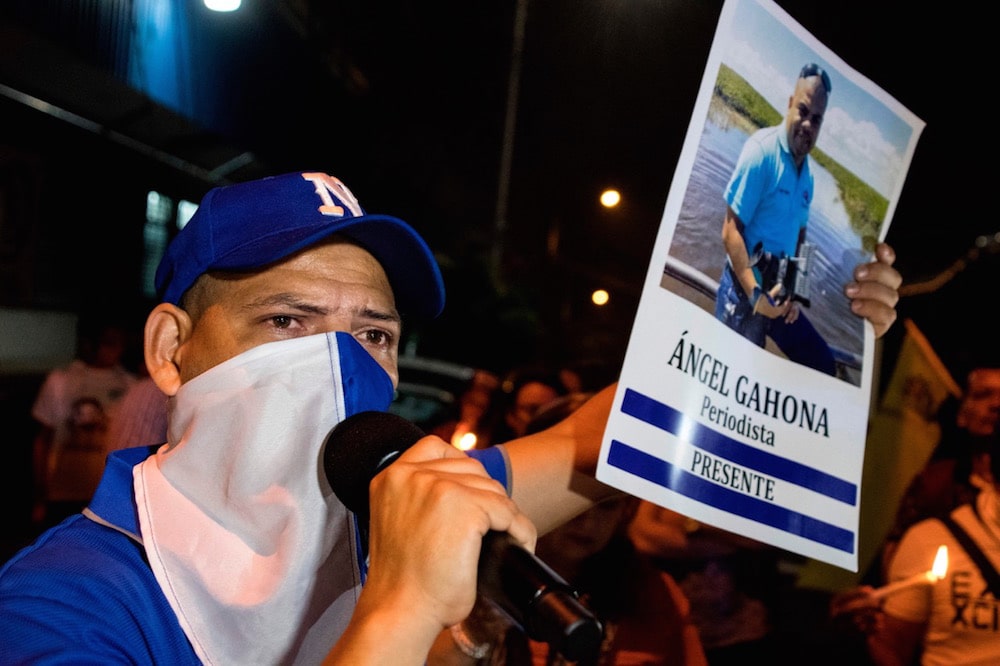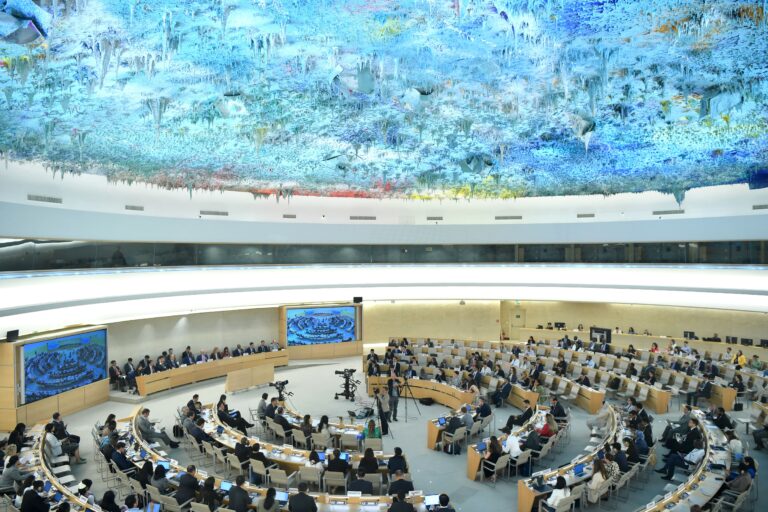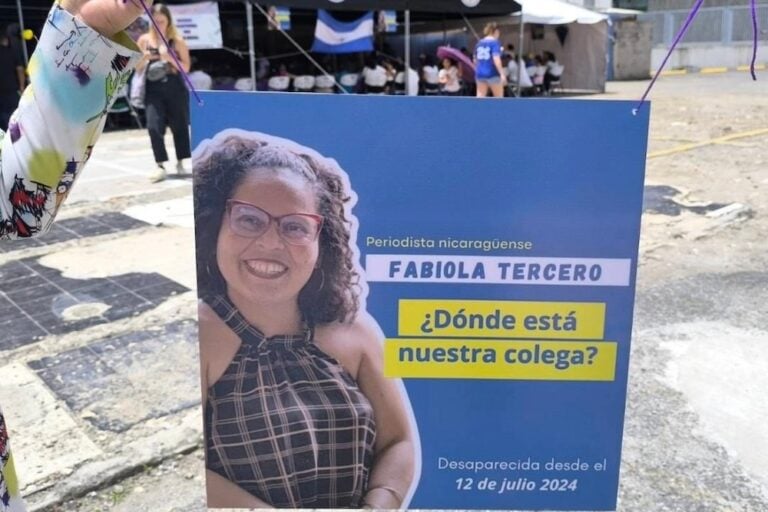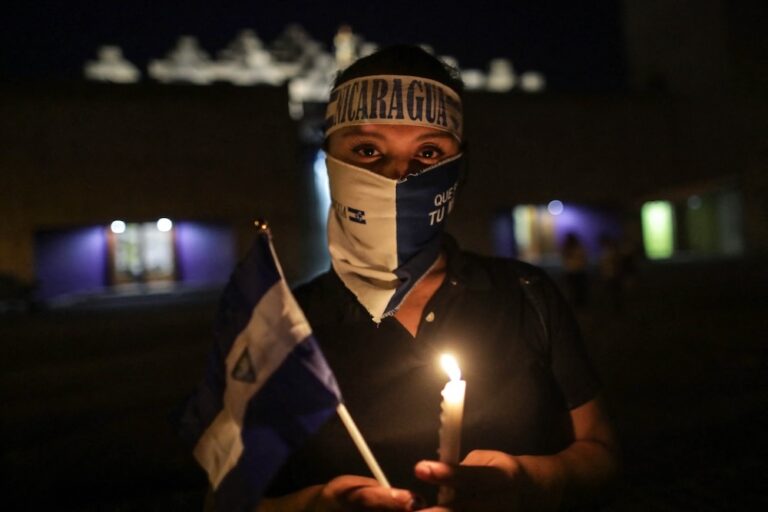We call on authorities to guarantee freedom of expression rights and We express our solidarity with Nicaraguan journalists and media workers, recognising their bravery, courage and unwavering commitment
While commemorating World Press Freedom Day, we, the undersigned organisations, condemn the serious deterioration in freedom of expression and press freedom taking place in Nicaragua. An environment that is hostile toward journalism persists in the country, providing no guarantees for the work of journalists. We have learned via complaints from affected journalists that they are being subjected to excessive scrutiny, insults and assaults while carrying out their work. They have also been forced to remove their face masks, used for preventing the spread of Covid-19, in order to be photographed and there have been reports of sexual abuse of journalists.
It is disconcerting to note the unequal, exclusionary and discriminatory treatment received by independent journalists, who are prevented from carrying out their work and denied access to public information – including reliable information about the Covid-19 pandemic. In addition, independent journalists are constantly targeted with assaults and violations of their rights. This situation has been documented by national and international human rights organisations, as well as the local media.
We express our solidarity with Nicaraguan journalists and media workers, recognising their bravery, courage and unwavering commitment to their vocation of seeking and sharing quality information despite the assaults, defamation, stigmatisation and culture of secrecy to which they are subjected as part of the current government’s strategy.
In recent months, legal proceedings have been used in an attempt to silence several journalists. Such is the case of Radio La Costeñísima journalist Kalúa Salazar, who, is addition to facing legal action, has also been repeatedly subjected to extensive police harassment, social media campaigns aimed at discrediting her, criminalisation of her activities and physical assaults, all for exercising her right to practice journalism.
As organisations that promote and defend freedom of expression and press freedom, we join the many voices that have been calling for progress in the case of murdered journalist Ángel Eduardo Gahona. We call on the government of Nicaragua to ensure that justice is served in the case, which dates back to April 2018. The individuals responsible for Gahona’s death must be identified and sentenced in order to bring three years of impunity to an end.
We are deeply concerned by the Nicaraguan government’s failure to implement the precautionary measures prescribed by the Inter-American Commission on Human Rights (IACHR) for journalists and their families. In addition, the failure to implement the 48 free expression recommendations provided to the state as part of the third cycle of the Universal Periodic Review conducted under the auspices of the United Nations Human Rights Council gives cause for concern. The recommendations are geared toward protecting and promoting freedom of expression, press freedom and access to information, in addition to ensuring respect for diversity and independence within the media. The government has also failed to comply with recommendations provided by the United Nations Office of the High Commissioner for Human Rights regarding establishing a dialogue based on international standards between the government and the opposition in order to address the serious and multi-faceted crisis in the country.
Within the context of the upcoming general election scheduled for November 2021, we call on the Nicaraguan government to implement special measures for protecting journalists who will be providing coverage throughout the electoral process. To date, covering election topics, such as pre-candidacies and opposition party platforms and presentations in different parts of the country, has led to increased levels of abuse and restrictions on press freedom.
The IACHR’s Office of the Special Rapporteur for Freedom of Expression has noted that healthy democratic debate requires “the greatest possible circulation of ideas, opinions and information regarding the candidates, their parties and their platforms during the period preceding elections, mainly through the communications media, the candidates and other individuals who wish to express themselves. It is necessary for everyone to be able to question and investigate the ability and suitability of candidates, and disagree with and challenge their platforms, ideas and opinions, so that voters can develop their voting criteria.”
Finally, we call on the Nicaraguan government to repeal the cyber-crimes and foreign agents laws, which run contrary to international freedom of expression standards. The existence of these laws has forced civil society organisations, including PEN Nicaragua and the Violeta Barrios de Chamorro Foundation, to shut down.
We, the undersigned organisations, fervently call on the Nicaraguan government to guarantee journalists’ security and refrain from using state apparatuses and the armed forces to harass and censor critical voices. We further call on the government to fulfil its international commitments, guaranteeing the freedom to exercise professional and independent journalism that provides reliable information regarding issues of public interest and protecting the right of citizens to receive information.



